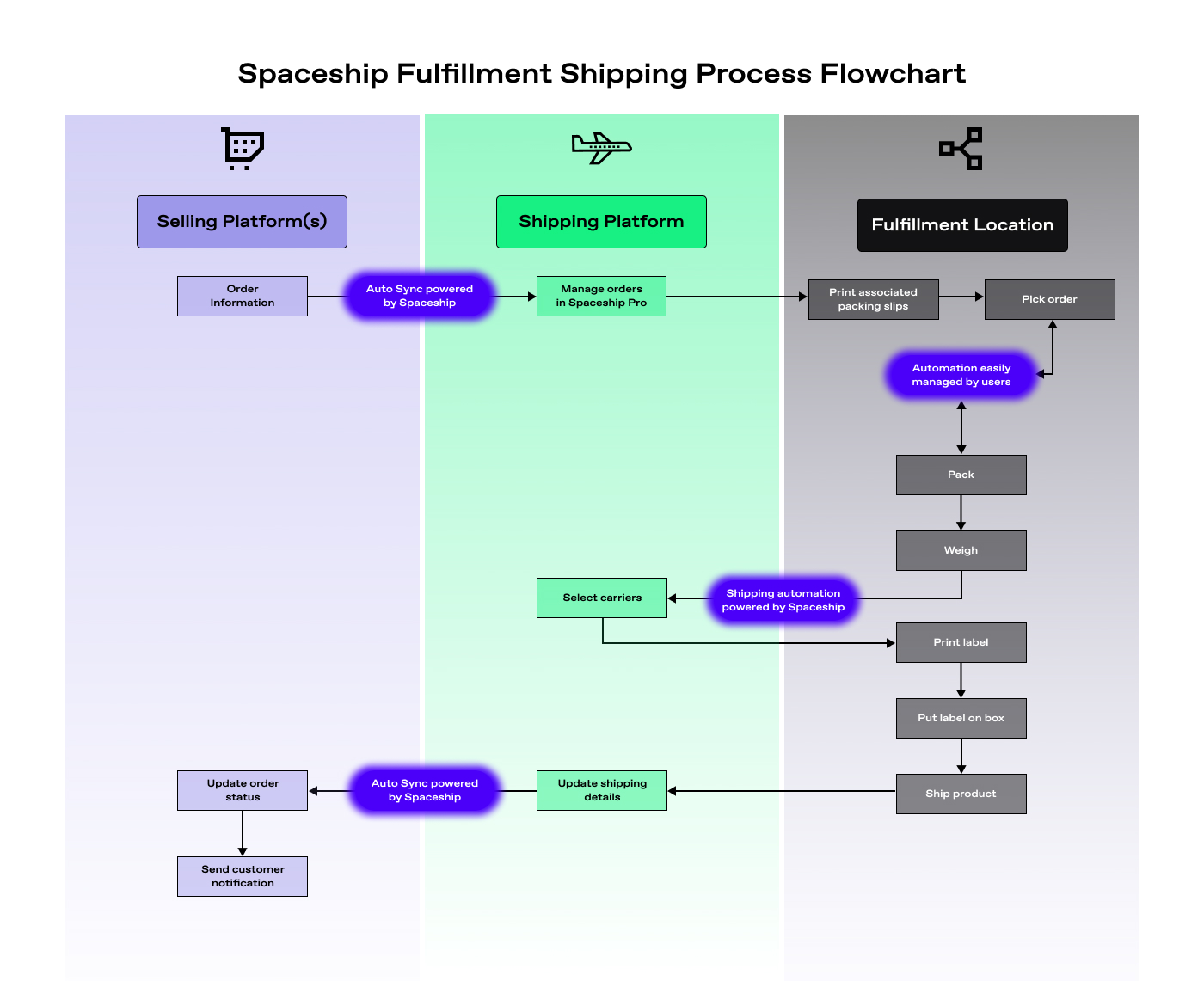
In the rapidly evolving world of eCommerce, small businesses often find themselves facing a crucial decision: whether to set up an eCommerce fulfillment warehouse in-house or utilize the services of a professional fulfillment partner. While both options have their merits, this article will shed light on why small eCommerce businesses should seriously consider outsourcing their fulfillment needs to a dedicated service rather than attempting to establish and manage a warehouse themselves.
Things to Consider When Setting Up a Fulfillment Warehouse
Setting up an in-house eCommerce fulfillment warehouse can seem alluring at first glance, promising greater control over the fulfillment process, reduced shipping times, and potentially lower costs. However, it’s essential to take into account the numerous factors and challenges that come with this endeavor:
| Factors to Consider | Key Insights |
| Initial Investment | Establishing a fulfillment warehouse requires a substantial upfront investment. From procuring storage space to purchasing packing materials, shelving, equipment, and software, the financial outlay can strain the resources of small businesses. |
| Location | The strategic choice of warehouse location greatly impacts shipping costs and customer contentment. Proximity to target markets, labor availability, and transportation infrastructure all influence operational efficiency. |
| Size | Balancing warehouse size with order volume is paramount. Sufficient storage space is essential for inventory management, while avoiding excess space prevents unnecessary costs. |
| Equipment | Outfitting your warehouse with suitable equipment optimizes fulfillment processes. Invest in tools like conveyor belts, picking carts, and technology that can expedite order processing and reduce labor demands. |
| Warehouse Management Software (WMS) | Implementing a robust WMS streamlines inventory tracking, order management, and picking and packing processes. Choose software that aligns with your business needs to enhance efficiency. |
| Staffing | Adequate staffing is critical for seamless warehouse operations. Hiring and training a capable workforce ensures timely and accurate order processing, contributing to customer satisfaction. |
| Returns | Effective return management is indispensable. Allocate a dedicated area for returns processing, expedite assessments, and execute swift refunds or exchanges to maintain customer loyalty. |
| Security | Implement comprehensive security measures to safeguard inventory from theft and damage. Utilize security cameras, alarms, and access controls to create a secure warehousing environment. |
| Compliance | Navigate various regulatory requirements, encompassing product safety and shipping standards. Adhering to these regulations is imperative to avoid legal repercussions and maintain customer trust. |
| Technology | Incorporating technology augments warehouse efficiency. Leverage tools like barcode scanners, RFID tags, and shipping software to automate tasks and optimize operations, enhancing overall productivity. |
Learn more: E-Commerce Warehousing and Fulfillment Centers in Hong Kong: A Comprehensive Guide 2023
The Difficulties of Setting Up and Maintaining a Fulfillment Warehouse for Small eCommerce Businesses
- Resource Limitations: Small eCommerce businesses often have limited budgets, manpower, and time. Channeling these resources into setting up and maintaining a fulfillment warehouse can divert focus from core business activities such as product development, marketing, and customer engagement.
- Economies of Scale: Larger fulfillment providers benefit from economies of scale, enabling them to negotiate better shipping rates, access advanced technology, and operate more efficiently. Small businesses may struggle to match these advantages on their own.
- Flexibility and Adaptability: The eCommerce landscape is dynamic and subject to rapid changes. A dedicated fulfillment warehouse partner is better equipped to adapt to shifts in demand, new shipping regulations, and emerging market trends.
- Operational Expertise: Fulfillment providers specialize in order fulfillment and logistics, leveraging their experience to streamline processes, optimize order accuracy, and minimize shipping delays. Attempting to replicate this level of expertise in-house can lead to costly errors.
- Time-to-Market: Launching an in-house fulfillment center involves a significant time investment, from scouting locations to recruiting and training staff. This delay could impede a small business’s ability to quickly capitalize on market opportunities.
Connect with Spaceship Fulfillment.
Get 30 days free storage when you sign up now.
Fulfillment Warehouse Solution: Partnering with Experts
Rather than navigating the complexities of establishing and managing an in-house fulfillment warehouse, small eCommerce businesses can benefit immensely from outsourcing this critical aspect of their operations to specialized fulfillment service providers. Here’s why:
- Focus on Growth: By offloading fulfillment tasks to experts, business owners can dedicate more time and resources to innovation, marketing, and expanding their product offerings.
- Cost Savings: Fulfillment warehouse partners can negotiate reduced shipping rates due to their larger shipping volumes, translating into potential cost savings for small businesses.
- Scalability: Fulfillment warehouse services offer flexible solutions that accommodate fluctuating order volumes, enabling small businesses to scale without the logistical headaches.
- Operational Efficiency: Leveraging technology-driven processes and experienced personnel, fulfillment warehouse partners can ensure accurate and timely order processing, minimizing errors and shipping delays.
- Market Advantage: Quick and accurate order fulfillment enhances customer satisfaction and drives repeat business, giving small eCommerce businesses a competitive edge.
Spaceship Fulfillment offers advanced techonology to let e-commerce owners control over the fulfillment process online. Just a few clicks needed to book the inventory and change the product packing rules instantly, plus comparing internal carriers online to find out the best-fitting shipping solutions.
Connect with Spaceship Fulfillment.
Get 30 days free storage when you book demo.
In conclusion, the decision to utilize a fulfillment service versus establishing an in-house warehouse is a critical one for small eCommerce businesses. The complexities, costs, and operational challenges associated with managing a warehouse internally can overshadow the potential benefits. By partnering with a fulfillment service provider, small businesses can focus on growth, benefit from operational expertise, and deliver exceptional customer experiences in the ever-competitive eCommerce landscape.









